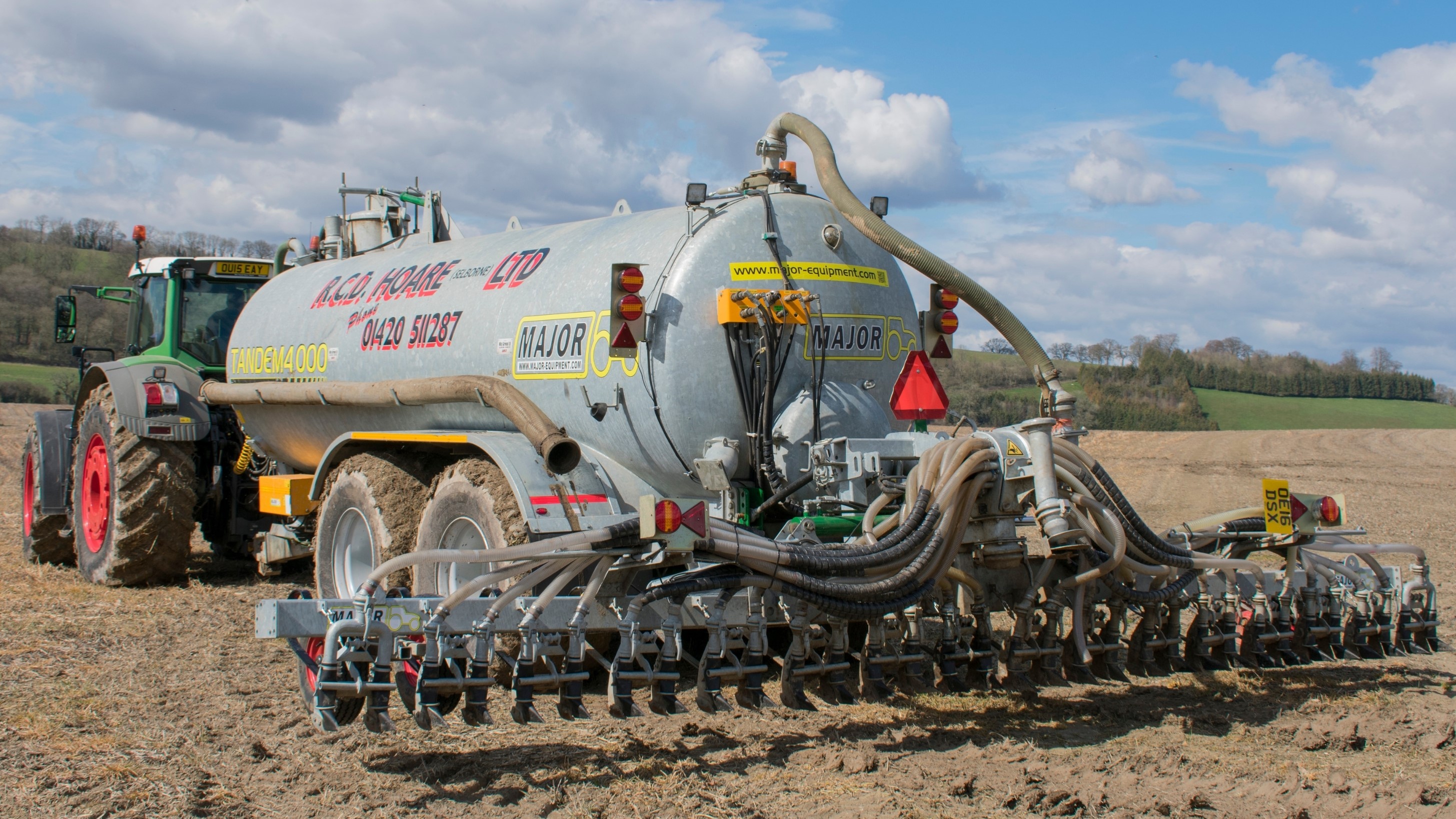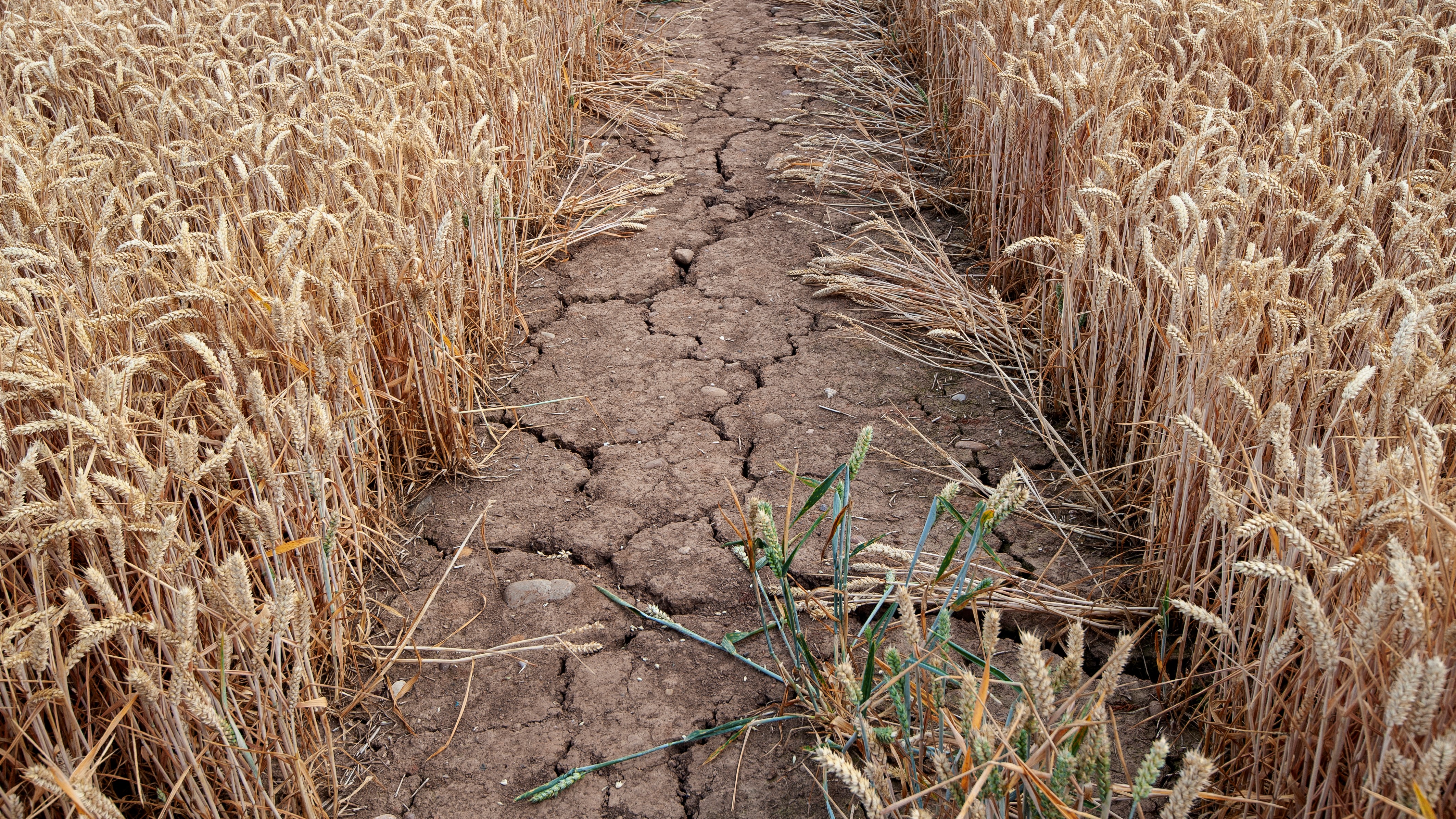
Land Journal: England has a set of regulations called the farming rules for water. Could you explain what these are?
Alastair Heinrich: The government's Reduction and Prevention of Agricultural Diffuse Pollution (England) Regulations 2018, also known as the farming rules for water, were introduced to reduce the risk of such pollution from agricultural sources. These rules cover the application and storage of fertilisers and the management of soil and livestock. The Environment Agency (EA) enforces the regulations.
LJ: What stipulations do the rules currently set for water quality?
AH: Regulation 4 states that the application of organic manures or manufactured fertiliser must be planned so that it does not exceed the needs of the soil and crop, or give rise to a significant risk of water pollution. Farmers should also take into account weather conditions and forecasts.
The soil phosphorus index risk assessment tool is used to quantify the potential pollution risk in a particular field. The index considers many factors, such as the conditions of the field; these include phosphorus levels in the soil, soil erosion and soil run-off risk, the quantity of nutrients to be applied along with their methods of application, and the distance to the nearest surface water.
Farmers recognise the role that their businesses play in protecting water quality, especially in rivers, but that has to work alongside producing food. Agriculture has made great strides in recent years in reducing on-farm nutrient emissions, which come from farm run-off and discharges from septic tanks for instance. Farmers have made good progress taking voluntary action on their own initiative and through sector-led initiatives to improve water quality.
The government is also working with farmers through DEFRA and its recently announced Slurry Infrastructure grant. The grant offers farmers funding for 50% of the eligible costs of investment to extend, replace or create additional storage for slurry on farm, so they have six months' capacity for their existing herd size.
This isn't a matter of increasing the farm's operational capacity, but of offering farmers the support they need to improve their slurry-handling facilities and capacity to reduce the requirement for spreading in the winter months.
LJ: What's happening with nutrient neutrality now?
AH: The case law has essentially led the government's nature regulator Natural England to be more cautious about the likely impact of new development on some designated, sensitive habitats when advising on planning applications.
There's a lot of conversation around the subject. The NFU has been raising awareness across government about the negative impacts of EU-derived case law on farm development and food production for several years. We have been calling for pragmatic approaches that strike the right balance between environmental protection and economic prosperity.
Farmers in affected areas may have to meet nutrient neutrality requirements when submitting planning applications for infrastructure such as improved livestock housing or slurry stores, even where they just want to replace and modernise existing buildings. This is an issue because such changes will often improve the emissions rating for the building or provide new ways to reduce pollution risk, such as improved water management or slurry capture. Farmers need clear guidance that will help them make improvements to manure and slurry management.
Some groups and organisations have the misconception that these changes are designed to expand or intensify a farm's operations. But an increase of the farm's operational capacity won't necessarily lead to more emissions. On the contrary, the renewal, expansion or replacement of on-farm facilities can decrease emissions.
For these affected farmers, the requirements around nutrient neutrality mean planning applications take more time and are more costly. The further costs of mitigation measures may ultimately prove prohibitive, so the potential for economic improvement is lost, and the environmental benefit is forgone.
Farmers may also feel the effects of nutrient neutrality when developers, usually housebuilders, choose not to mitigate their own nutrient pollution but prefer to use agricultural land to offset the potential emissions. This often involves housebuilders looking to buy productive farmland and turning it into natural habitat. While this might present an opportunity for some, the potential for widespread land-use change poses a threat to food production and security.
We're trying to broaden the discussion about the role agriculture can play in a way that works for both food production and the environment. We shouldn't sacrifice productive agricultural land for offsetting because this is not the most sustainable means of achieving nutrient neutrality. So we're urging local authorities to be cautious if they are considering taking land away from their county farm estates to offset developments.
Tenants farm more than 60% of England's agricultural land, playing a pivotal role in producing food for the nation and looking after our environment. That is why it is important that such tenanted land is protected, and any loss minimised.

Slurry spreader on farmland. © NFU
LJ: What's the situation when it comes to nitrate pollution?
AH: Agriculture gets attention even though it isn't the only source of nitrate pollution. Agricultural nitrogen application rates have dropped significantly in the past 25–30 years thanks to farmers adopting good practice and seeking professional advice, as well as working with voluntary initiatives such as the Campaign for the Farmed Environment and Tried & Tested. These water industry catchment management schemes advise farmers how to improve the impact of their activities on the environment, understanding what's going on in the soil and how this affects local water.
On average, rates of nitrogen usage have decreased by 42% since 1984; and that statistic will likely have fallen even further in the past year with the increased cost of nitrogen-based fertiliser. Industry is working to reduce artificial fertiliser application to improve the productivity and cost-effectiveness of farms. For example, of the farmed area in England and Wales, 72% is covered by nutrient management plans and 82% is covered by manure management plans to help farmers use manure and artificial fertilisers in the best way.
Between 2007 and 2014, British farmers match-funded £84m of grant-financed improvements aimed at reducing pollution by catchment-sensitive farming, resulting in a 12% reduction of agricultural pollutants in that time.
Slurry management also has a role in reducing nitrogen pollution. On 6 December, DEFRA announced the Slurry Infrastructure grant which is targeted at dairy, beef and pig farmers in England. This is designed to fund a range of storage types that meet the farming rules for water as well as the Building Regulations, and will help replace or expand existing slurry stores or build new ones, to provide six months' storage. These future-proofed slurry infrastructure and nutrient management systems will help reduce water and air pollution risk allowing eligible farmers to better use valuable nutrients on farm.
NFU's view
'Good water quality in our nation's rivers is of paramount importance to everyone, and farmers want to continue to make their contribution. Farming has already made significant progress, with a 75% reduction in serious incidents year-on-year compared to 2000.
'Farmers will continue to adapt and make improvements on their farms to ensure they can protect the environment while producing the nation’s food. It's vital that future farming schemes enable farmers to invest in new technology and infrastructure to tackle potential pollution issues.
'It's positive that the government is looking at this, particularly with slurry infrastructure, and it's crucial it is accessible to as many interested farmers as possible.'
Richard Bramley, chair, NFU Environment Forum

